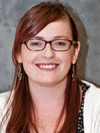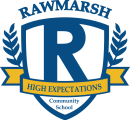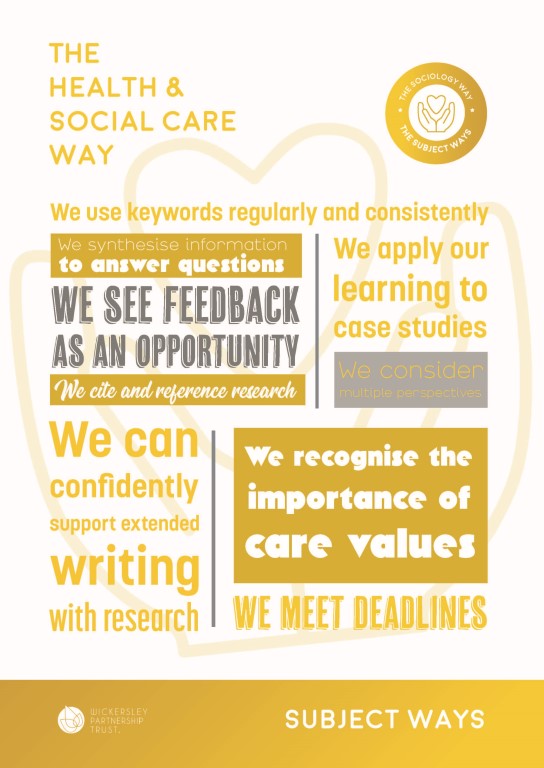Curriculum
Health & Social Care

Mrs Mayfield
Head of Social Sciences
Subject Staff
Mrs Hawkridge
The Subject Way
Our subject has a ‘Subject Way’ at the heart of it. Our Subject Way is designed to help students become young subject specialists. The Subject Way has two main purposes:
- Firstly, to teach students the vital skills they need to achieve their full potential and gain the very best grades they can. Secondly, to teach students how each subject relates to the wider world, incorporating the life skills they will learn.
- It is our belief that knowing how what you learn links to the wider world brings a subject to life and therefore improves overall understanding and engagement.
Curriculum Intent
At Rawmarsh Community School we aim to ensure our Health and Social Care curriculum is designed to sequence learning and embed the key skills that are required to develop curious students into competent individuals with a sound knowledge base of development or individuals across the life span as well as health and social care settings and the practices within them.
Our curriculum empowers students to develop their interest around a wide range of interlinking themes within the health and social care world that expose students to a wider world beyond that of the local community. Within our local community we work closely with the local residential care home to expose students to real life health and social care settings and work with the careers team to get our students work based experience if requested to enhance tnges of the world beyond school. Our curriculum empowers students to develop their interest around a wide range of interlinking themes that expose students to a wider world beyond that of the local community. Our one-year Key stage 3 Year 9 curriculum introduces students to knowledge and skills that are needed in Health and Social Care and our 2-year Key Stage 4 curriculum builds on new learning and ensures that we nurture student’s skills for learning so they develop over time. Our intention is to develop a curriculum that helps students develop into well rounded human beings ready and able for the challenge to develop over time. Moving from L1 through to L2 distinction level. We give all students the opportunity to reach their highest potential and differentiate learning down where necessary to support students and foster learning.
The removal of barriers
The Health and Social Care curriculum allows students to develop their Literacy skills. Students will have the opportunity to develop their Oracy skills in every lesson when answering questions or engaging in class discussions. All students have the opportunity to take part in role plays to practice and demonstrate vital skills such as communication skills. Students will be given key vocabulary to support their learning and there will be reciprocal reading based around Health and Social Care topics.
Developing skills for learning
Throughout the Health and Social Care curriculum students will develop creative skills by applying knowledge to different scenarios. Students will also be learn to recall information and apply them to different situations such as case studies. Students also have to create health and care plans for different case studies. As part of Health and Social Care pupils practice divergent thinking when applying knowledge to different scenarios as well as understand a person cantered approach.
Fostering of personal attributes
Aspects of the Rawmarsh Way are built into the Health and Social Care curriculum. Students will develop independence skills by undertaking and completing assignments. Independence and Resilience skills will also be developed by students learning how to develop their ideas. Overall, students will be able to develop fundamental Health and Social Care skills which will allow them to be responsible citizens in and out of Rawmarsh Community School.
Enriching student experiences and broadening their horizons
Students are given a range of opportunities to broaden their horizons in the Health and Social Care curriculum. Students will get the opportunity to hear from real practitioners such as various job roles in the NHS. Students also will get practical experience through the use of demonstrations and practical activities. All students will also get the opportunity to take part in the annual Step into the NHS competition as part of a Year 9 topic of study.
Our Curriculum
In Year 9 our students are introduced to the key topics and understanding in Health and Social Care. They start by learning about Human Development over time focussing on Physical, Intellectual, Emotional and Social development. They then investigate how different factors can impact Human Development. Students are then given the opportunity to research careers within the NHS and create an advert to teach others about their chosen career. Students also get to investigate different health conditions and learn about the impact these can have on Health and Wellbeing and learn about different sources of support.
In year 10 we start completing the coursework elements of the course. In Health and Social Care there are two coursework units and each is broken down into 2 separate pieces of work. The first unit is Human Lifespan Development and the first piece of coursework is Understand human growth and development across life stages and the factors that affect it. Pupils learn about different life stages and how PIES (Physical, Intellectual, Emotion, Social) develop across each lifestage. We then explore Physical factors, such as diet, Social and Cultural factors, such as role models, and Economic factors, such as poverty and explain how they can impact on a persons PIES development across different life stages. The second piece of coursework in this unit is Investigate how individuals deal with life events.
We explore different types of life events including expected (e.g. marriage) and unexpected (death) and the impact that these can have on a person. Students also research the sources support that someone may need to help them through difficult situations and the types of support that they can give. This includes investigating formal support, such as a doctor, informal, such as friends and family and voluntary such as charities. Students apply their knowledge to two case studies and demonstrate their understanding through writing about what may happen. In the third term of Year 10 students start work on the second unit of study Health and Social Care Services and Values. The first piece of coursework in this unit is Understand the different types of health and social care services and barriers to accessing them. Students learn about the different types of health care providers such as Primary care (e.g. GP, Dentist, Opticians), Secondary/Tertiary care (e.g. specialist care such as dermatologist) and Allied care (e.g. physiotherapy) and their role and responsibilities. We also study different social care services and look at which service users may use them for example services for young people such as foster care.
Students advance on the key writing skills that they learnt in year 9 applying them to writing up their coursework. Researching, planning, observing and evaluating skills are developed throughout their coursework. The skills learnt will be useful in further studies as these are transferable skills and could be applied to many subject areas. Due to the nature of the coursework element pupils also learn key life skills such as independence, time management skills and resilience.
In year 11 we start with focussing on the exam element of the course with the exam taking place in the January of year 11. The exam unit is on Health and Wellbeing and learners will study the factors that affect health and wellbeing, learning about physiological and lifestyle indicators, and how to design a health and wellbeing improvement plan. Within this unit we look at physiological and lifestyle indicators including physical indicators like genetic conditions, ill health, diet, exercise, substance abuse and personal hygiene, Social/Emotional factors like stress, relationships, willingness to seek help, Economic factors and Environmental factors such as pollution and housing.
Pupils are then taught how to interpret health indicators such as pulse, blood pressure, peak flow and BMI and the risks posed to health. The final part of the exam is creating a health and well being plan where pupils are taught about SMART targets and how to create a plan around a number of health issues. The final coursework unit in year 11 is Demonstrate care values and review own practice. Pupils learn about and then through a role play demonstrate the different care values that are vital in a health and social care career. Students then review their own practice evaluating the successes and improvements that they would need to make if they were to do it again.
Students advance on the key writing skills that they have learnt throughout health and social care applying them to writing up their coursework. Researching, planning, observing and evaluating skills are developed throughout their coursework. The skills learnt will be useful in further studies as these are transferable skills and could be applied to many subject areas. Students learn real life health and social care skills which could be transferred into real life job roles. They learn how to demonstrate care value skills such as empathy, independence and communication skills. They also learn how to write a health and care plan which teaches them valuable lessons in targeting setting and making targets specific, measurable, achievable, relevant and timed.
Department Staff
- hmayfield@rawmarsh.org
H Mayfield
A Hawkridge
Find out more
If you would like more information about our curriculum, please contact the school using the details on our contact page.
Our Subjects at KS4
CORE SUBJECTS
EBACC SUBJECTS
OPTION SUBJECTS



